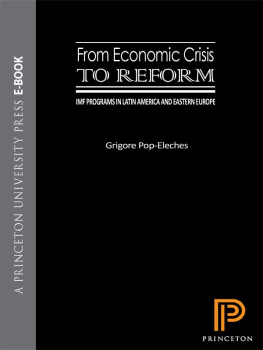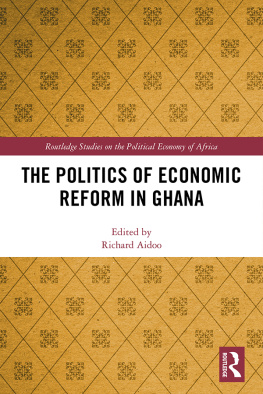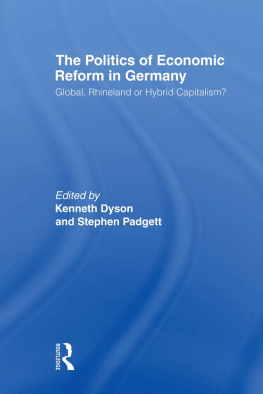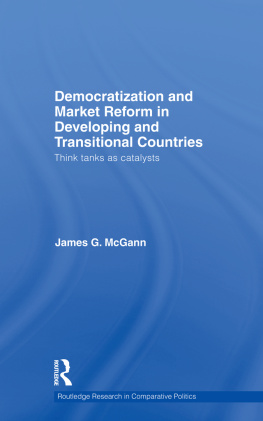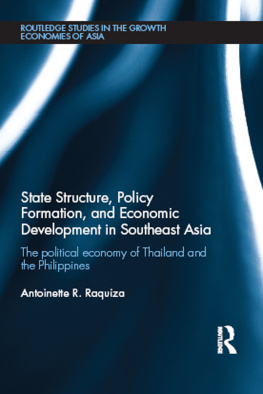First published 2002 by RoutledgeCurzon
This edition published 2012 by Routledge
2 Park Square, Milton Park, Abingdon, Oxon OX14 4RN
Simultaneously published in the USA and Canada by Routledge
711 Third Avenue, New York, NY 10017
Routledge is an imprint of the Taylor & Francis Group, an informa business
2002 Andrew Rosser
Typeset in Stempel Garamond by LaserScript Ltd, Mitcham, Surrey
All rights reserved. No part of this book may be reprinted or reproduced or utilised in any form or by any electronic, mechanical, or other means, now known or hereafter invented, including photocopying and recording, or in any information storage or retrieval system, without permission in writing from the publishers.
British Library Cataloguing in Publication Data
A catalogue record of this book is available from the British Library
Library of Congress Cataloguing in Publication Data
A catalogue record for this book has been requested
ISBN 0700714766
Preface

In mid-1997, the Asian economic miracle suddenly came to an end. The collapse of several currencies within the region left a number of national economies in crisis. Many major business groups within the region were unable to repay their foreign and domestic debts, anxious foreign and domestic investors relocated vast amounts of capital abroad, interest rates, inflation and unemployment soared in some countries, and banking systems in the region teetered on the brink of collapse. At the same time, these economic problems led to the collapse or near collapse of several governments within the region. In South Korea, an opposition party led by Kim Dae Jung came to power for the first time. In Thailand, the governing coalition of Chavalit Yongchaiyudh fell and was replaced by a more reformist coalition under Chuan Leekpai. And, in Malaysia, the position of Prime Minister Mahathir Mohammad came under sustained attack from a large popular movement led by former deputy Prime Minister, Anwar Ibrahim, and his wife, Wan Azizah.
But nowhere has the crisis had a more severe political and economic impact than in Indonesia. The collapse of the rupiah left most of Indonesias private sector conglomerates technically bankrupt and made it impossible for them to raise new foreign loans. This in turn placed enormous stress on the countrys banking system, forcing the government to close, nationalise or assume managerial control over dozens of private banks. The crisis also drove millions of people into poverty as inflation increased and unemployment spread. Political and social unrest also spread, as evidenced by the massive wave of riots and student demonstrations that struck the country during 1998. Finally, the crisis produced dramatic political change. After more than 30 years in power, Suharto was forced to step down as President in May 1998 in favour of then Vice-President B. J. Habibie. This in turn precipitated a shift away from authoritarian rule in Indonesia and towards a fragile form of democracy. This shift was completed with the election of Abdurrahman Wahid as President and Megawati Sukarnoputri as Vice-President in October 1999.
In the wake of these developments, several neo-liberal scholars have been quick to declare the end of the Asian economic model and Indonesias brand of oligarchic capitalism in particular. Michel Camdessus and Jeffrey Frankel, for instance, have argued that the Asian crisis has exposed the inherent weakness of the Asian economic model, both in its developmental and oligarchic/crony capitalist forms, and, as such, provided a historic opportunity for countries in the East Asian region to shift towards more market-based systems of economic organization (Asian Wall Street Journal, 13 November 1997; Frankel 1998:11). Similarly, Francis Fukuyama has argued that the crisis has led to the unconditional defeat of the Japanese economic model of state-led development (as quoted in Asiaweek, 20 August 1999) and is consequently leading to growing convergence between Asian and neo-liberal economic systems. [I]n all three areas economic, political, and social, he argued, there are good reasons for thinking that the distinctive institutions and practices fostered by Asias cultural systems will converge over time with the patterns seen in the West. Far from reinforcing Asian exceptionalism, the current economic crisis will accelerate the homogenization of trends (Fukuyama 1999).
Such neo-liberal triumphalism implores us to look closely at the issue of how markets are created and, specifically, whether political and social conditions in East Asia and Indonesia in particular are conducive to their existence. At the heart of the predictions by Camdessus, Frankel and Fukuyama has been a belief that liberal markets emerge as a result of economically rational choices rather than the pursuit of political and social interest that is, as a result of a common concern to maximise wealth and efficiency in society as a whole rather than a concern to maximise the wealth and power of a segment of society. This book suggests that such an understanding of market formation is deeply flawed as are the predictions of East Asias and Indonesias future that are based upon it.
To support this argument, the book examines the dynamics of economic liberalisation in Indonesia since the mid-1980s. Specifically, it seeks to explain why reform outcomes in that country differed across time and economic sector. In contrast to rational choice theorists who have examined Indonesias political economy, it argues that these outcomes need to be understood in terms of the countrys structure of power and interest and the way this was affected by the two major economic shocks during this period, the collapse of international oil prices in the mid-1980s and the onset of the Asian economic crisis in mid-1997. It employs an approach that, in contrast to rational choice approaches, gives full regard to the way in which political and social forces shape processes of economic liberalisation and affect possibilities for the creation and consolidation of liberal market systems.
In terms of Indonesias future, the book suggests that, in contrast to the predictions of Fukuyama and others, Indonesia is unlikely to converge on the neo-liberal model. Whilst the crisis has clearly unleashed powerful structural pressures for reform, prospects for reform are limited by the fact that the country lacks one of the main prerequisites for the existence of liberal markets: a strong domestic coalition of interests that supports market reform. Indeed, the danger for Indonesia is that the crisis will do more to strengthen radical populist and nationalist elements within society than liberal elements. In short, it is possible that Indonesia will become a prime site for what Richard Higgott (2000) has called the politics of resentment. Alternatively, the crisis may precipitate the unravelling of the state and a rapid and potentially destabilising decentralisation of power.


